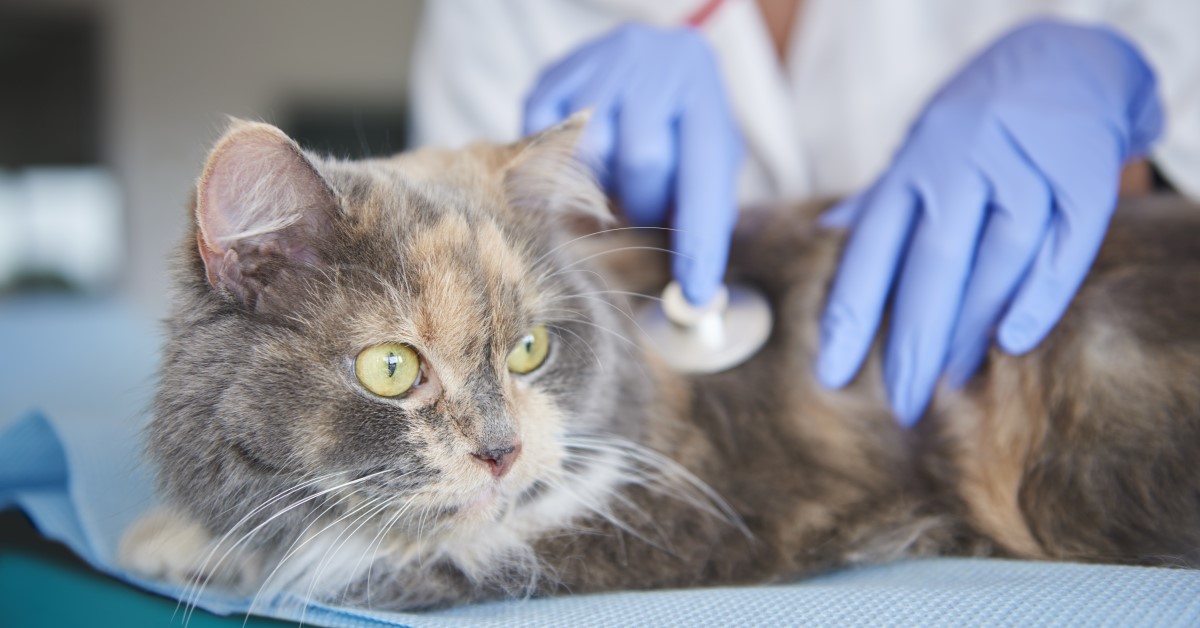Why Your Pet Needs an Annual Wellness Exam
Explore the many benefits of annual wellness exams to keep your pets healthy and happy.

As a devoted pet owner, you want the very best for your pet. Bringing your pet in for an annual veterinary check-up is one of the best ways to maintain their health and wellness. More than just a formality, an annual wellness exam plays a key role in preventive care, allowing your vet to catch potential problems before they progress. If you’re contemplating your next pet wellness exam, learn why these visits are critical for your animal’s wellbeing.
What Is an Annual Pet Wellness Exam?
An annual wellness exam is a comprehensive health check-up conducted by a veterinarian. The goal of a pet health screening is to assess the animal’s overall health and identify potential health problems early on.
During a routine exam, your vet will perform a thorough physical examination. This may include checking vital signs, weight, skin condition, and dental health. Throughout the exam, your vet may discuss various aspects of your pet’s health, such as their diet, exercise routine, and behavioral changes you may have noticed. Depending on the age and overall health of your pet, your vet may recommend routine testing, such as blood work or a fecal exam, to ensure that all systems are functioning properly.
How often you should bring your pet for a wellness exam will depend on various factors, such as your pet’s age, existing health conditions, and overall well being. However, most species can benefit from seeing a vet about once per year. Younger pets, such as puppies and kittens, may need more frequent visits to properly monitor development and keep up with vaccinations.
Early Detection of Pet Health Issues
Many health issues, such as parasites, obesity, and dental disease, can be detected early on with routine wellness exams. If left untreated, these conditions could be harmful to your pet’s health. For example, dental disease can result in painful infections and possible tooth loss, while obesity can contribute to diabetes and joint problems. Ticks, fleas, and other parasites can significantly impact your pet’s health and comfort.
During your pet’s yearly visit to the vet, your provider will monitor potential changes to your pet’s weight, dental health, and overall physical condition. Once a thorough exam has been completed, your vet can provide guidance on how to approach potential issues. For example, a vet may recommend a dog suffering from obesity to have a change in diet and exercise to gradually lose weight in a healthy way.
Vaccinations and Preventive Care for Dogs and Cats
Keeping up with your pet’s vaccinations throughout their life is essential for their health and the wellbeing of other animals in the home. Vaccines are designed to protect against serious diseases, such as rabies, parvovirus, and distemper. With scheduled vaccinations, you can help your pet build up immunity and reduce the risk of outbreaks.
As part of your pet’s preventive care, your vet may recommend various treatments. For example, flea and tick prevention is ideal for all pets to avoid the transmission of diseases through parasites. Heartworm prevention is also vital, especially in areas where these parasites are prevalent. As each pet is unique, preventive care should be tailored to your pet’s unique environment and your lifestyle.
Nutrition and Weight Management for Dogs and Cats
Weight and overall nutrition are commonly evaluated during routine wellness visits. Your vet will evaluate various factors, such as your pet’s current weight, how it compares to previous weigh-ins, and the amount of muscle mass and body fat. Potential problems, such as malnourishment or obesity, will also be addressed if necessary.
Pet wellness exam visits are the perfect time to speak to your vet about your pet’s nutrition. An animal’s nutrition can change over time, especially as your pet ages or experiences unique illnesses or diseases. Your vet may recommend switching to a specific diet that may help your pet lose weight, gain weight, or provide certain nutrients your pet may be missing from their current diet.
Pet Behavioral Assessments and Solutions
Pets can experience behavioral changes over time, some of which may be of concern. Increased aggression, withdrawal, excessive barking, and other unusual behaviors may indicate that there is a physical or emotional underlying issue with your pet. By sharing your observations with your vet, you can help determine the problem and search for a practical solution.
It's not uncommon for pets to experience problems such as stress or anxiety. These issues can develop for a range of reasons, such as moving to a new home, the birth of a new child, or a health-related incident. Your vet can help you identify possible signs of stress or anxiety in your pet, such as destructive behavior, changes in appetite, or excessive vocalization.
Once the problem has been identified, your vet may recommend behavioral interventions or training to help your furry friend. Anxiety-reducing products, behavior modification techniques, and referrals to personal trainers may be what you need to help your pet recover.
Importance of Scheduling Your Next Pet Wellness Exam
Prioritizing annual wellness exams for your vet can help you maintain their health and happiness throughout their life. These routine check-ups are the perfect opportunity to detect possible health issues, provide personalized preventive care, and get sound nutritional and weight management advice. If you haven’t already, don’t wait to schedule your pet’s next annual wellness visit.
Ready to start saving money on pet wellness care?
Then take a look at Mint Wellness, the pet wellness plan that provides fast reimbursement on routine pet care. Save on vaccinations, wellness exams, preventatives, dental, and more!
Learn More
